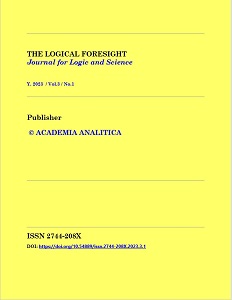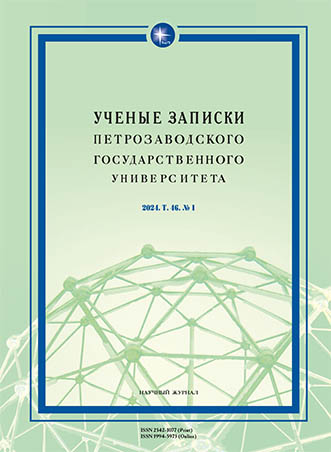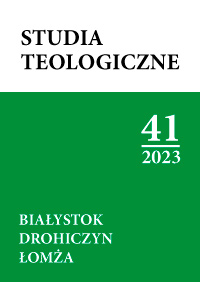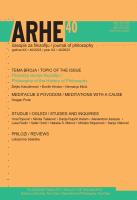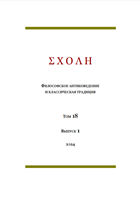Author(s): Laura Bitiniece / Language(s): Latvian
Issue: 1/2023
“Yesterday I went down to Piraeus with Glaucon, son of Ariston [...]” starts the first book of “The Republic”. Investigating this going down or katabasis makes the going up or anabasis present in “The Republic’s” discussion clearer. What is the role of beginnings? It is the most important part of everything (Rep. 377d). This article shows how Socrates’ conversations with three interlocutors – Cephalus, Polemarchus, and Trasymachus – introduce the main big themes of the remaining nine books, namely, the role of a character in ethics, the distinction between knowledge and seeming, the terms technē and eudaimonia with implications for the concept of virtue, as well as jump-starts the question about the importance of unreflected cultural influence in one’s life. It might be paradoxical for some readers to find the first book seemingly contradicting the rest of the work concerning Plato’s attitude towards culture and arts. Firstly, the article addresses the question of the origin of the first book, namely, if it is an artificial addition or an intended beginning to the discussion of “The Republic,” supporting the latter claim. Secondly, the article touches upon the subject of Plato’s use of metaphors, choice of settings, and interlocutors, especially in the case of the first book. Katabasis and anabasis, as mentioned earlier, are metaphors that will also prepare the reader for the allegory of Cave, while the allegory of Cave sheds light on the meaning of the metaphors in the first book. At the end of the same conversation, the interlocutors will also have made anabasis, making their way upwards. Thirdly, a concise overview of the first book is offered, intending to elucidate the Republic’s main themes as they are revealed. The first book announces itself as an introduction to further discussion. It serves as a reason for gaining a deeper understanding of justice because it prepares the ground for considering justice as the most crucial practical concern: the question of what constitutes a good life. Already in the dialogue Gorgias, Socrates has said that “the most beautiful of all studies [is] [...] what a real man should be and what he should do[...]” (Grg. 487e-488a). In the fourth book of the Republic, he will clarify the role of justice in human character: justice is the virtue that makes all other virtues possible, or virtue as such (Rep. 433b-c), and he will provide an apologia for justice from a cosmic perspective (book ten of the Republic). The first book gains its importance precisely because it introduces the reader to an everyday, unreflected understanding of justice while simultaneously revealing the importance of justice for any person’s reflection on their own life and that of society. Fourthly, the author starts to reflect on the philosophical and artistic meaning of Plato’s choices. The article concludes by pointing out an apparent controversy between the first book and the rest regarding cultural influences and Plato’s widely known views on the censure of arts, which he seems to disregard himself by portraying Trasymachus. Another controversy might be concerning the figure of Cephalus, Plato’s ambivalently interpreted attitude towards him, and what he represents (unreflected yet virtuous enough character). In the end, it is suggested that readers might benefit by distancing from oversimplified ideas such as “Plato’s political program,” etc., and reveal for themselves deeper levels of The Republic that Plato engines at the very beginning of the book.
More...
